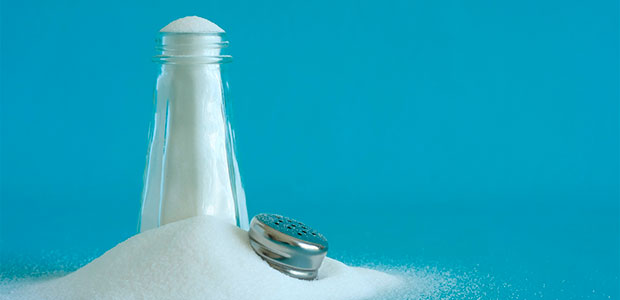Advertisement
Can Eating Too Much Salt Trigger Multiple Sclerosis?
Though researchers have expressed caution about the preliminary nature of current studies, they have reported a possible link between high levels of sodium and autoimmune diseases such as multiple sclerosis and psoriasis. In a Yale School of Medicine experiment, published in the journal Nature, researchers exposed helper T cells from lab mice and humans to … Continued

Though researchers have expressed caution about the preliminary nature of current studies, they have reported a possible link between high levels of sodium and autoimmune diseases such as multiple sclerosis and psoriasis.
In a Yale School of Medicine experiment, published in the journal Nature, researchers exposed helper T cells from lab mice and humans to high levels of sodium chloride (similar to levels found in the modern Western diet).
The result was similar for both species: high salt levels increased the induction of the white blood cells into pro-inflammatory TH17 cells. These cell proteins have been implicated in autoimmune diseases such as psoriasis and multiple sclerosis by producing a molecule called interleukin 17A (IL-17A) that aggravates inflammation.,
In the human cells, excess salt caused the proportion of TH17 cells producing IL-17A to rise from 2 to 40 percent and the concentrations of IL-17A to increase tenfold.
In another experiment, when food containing different levels of salt was fed to mice bred to develop a form of multiple sclerosis, those with the higher levels became completely immobile within a week, while those fed low-salt diets only lost the ability to move their tails.
The good news is that researchers, in finding this new connection, were also able to discover ways in which to mediate the negative effects. But they cautioned that much more work would be needed before any definitive connection between salt levels and autoimmune diseases can be declared.
Advertisement
Salt and heart health
Many studies have been able to confirm the effects of high salt intake on heart health. The cause, of course, is high blood pressure linked to increasing amounts of sodium in the diet. Studies have also shown that reducing dietary sodium has an effect on reducing blood pressure and improving heart health.
Advertisement
Salt and cancer
Dozens of studies have also linked high sodium intakes with an increase in risk of stomach cancer. High levels of salt, sodium, or salty foods are considered a “probable cause of stomach cancer.”
Advertisement
Salt and bone health
Salt is connected to bone health because the more salt we take in, the more calcium our bodies flush out in the urine, making us more susceptible to osteoporosis. Studies have demonstrated that when levels of sodium intake increase, urinary calcium excretion also increases, causing an increase in bone loss.
Advertisement
It’s not all bad news
The good news is that we can take control of this dietary risk factor with a small change in our lifestyle choices. One of the best things you can do to reduce your risk is to start reading labels. Beware of all canned/processed foods. They’re the biggest—and sneakiest—sources of high levels of salt in our diets. Here’s a list of stealth foods that contain loads of sodium:
- canned tomato sauce
- cottage cheese
- cheese (especially low-fat varieties because salt is used to enhance flavour)
- breakfast cereals
- fast-food sandwiches (including burgers)
- ketchup and other condiments
- salad dressings
- flavoured rice and pasta mixes
- baking powder and baking soda
- meat pizza
- bread/rolls
- hot dogs
- ham and other processed meats
- flour tortillas
- canned soups and vegetables





